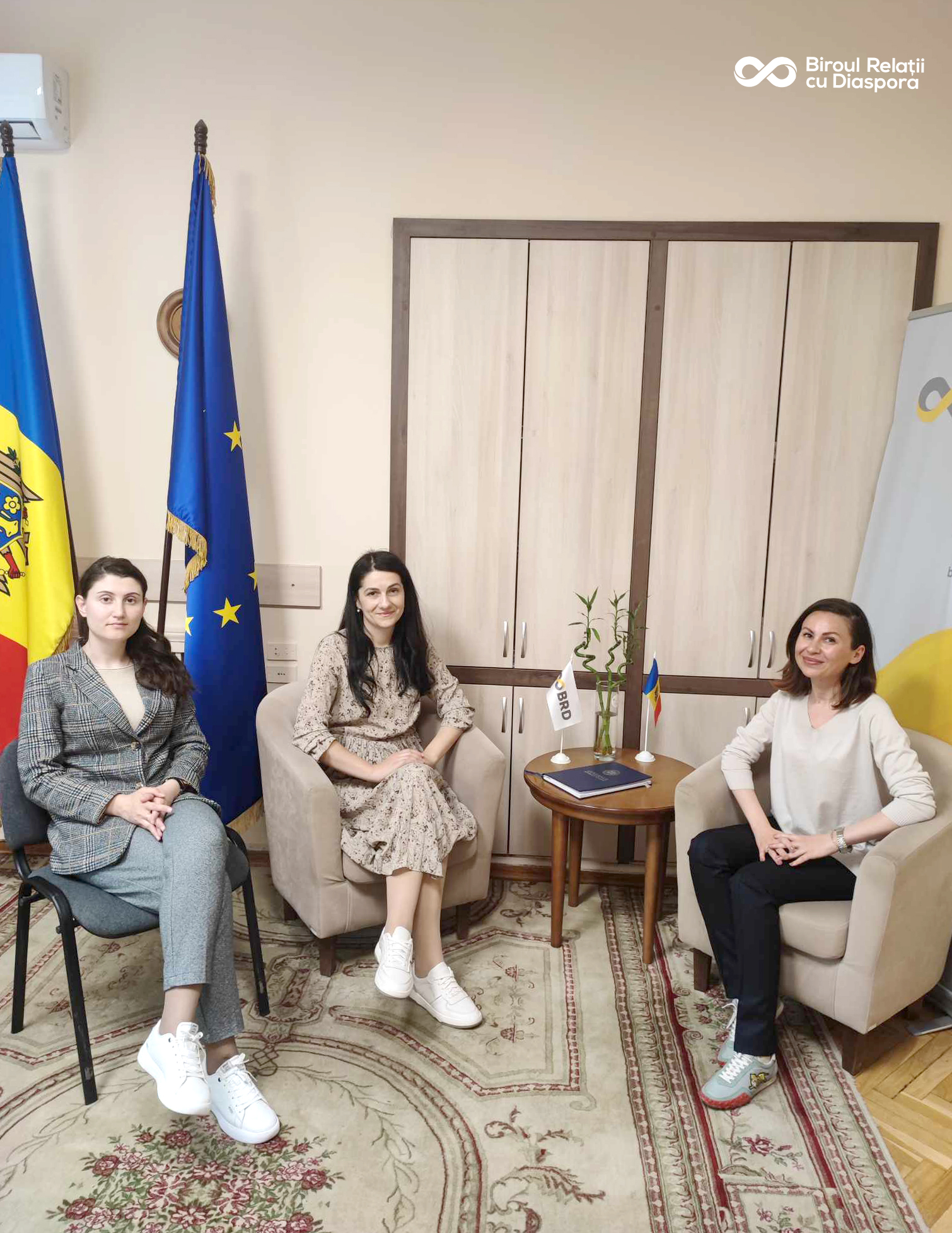The author of the board game Mobility Era Game, Irina Burlacu de Paoli, visited the Diaspora Relations Bureau
Irina Burlacu de Paoli, researcher, sociologist, lecturer at Maastricht University, Kingdom of the Netherlands, author of the board game Mobility Era Game visited the Diaspora Relations Bureau. A good pretext to know more the details about the Bureau's activity and to maintain a dialogue with the team was the project that the national team won within the thematic grant program „Diaspora Engagement Hub” (DEH).
The guest mentioned that for a long time she has been following the evolution of BRD and particularly, the Programs destined to members of the diaspora and this year she decided to submit the dossier to DEH, to benefit from the opportunity offered for this purpose, but also to bring home the experience and expertise accumulated in several countries of the world. Doing her master's degree in Luxembourg and her doctorate in the Kingdom of the Netherlands, Irina Burlacu set out to include in her doctoral thesis, in addition to research and innovation, another important element, namely that of utility. Respectively, the researcher created the board game Mobility Era Game, which is currently in great demand in the educational institutions of the Kingdom of the Netherlands and through the project called „Educational Technology and Education in the Base of Game” she will present it to the guild colleagues and also to pupils from Moldova.
Regarding the implementation procedure, Irina Burlacu specified that in the European countries there are respected the same conditions and ways of carrying out projects as those in the Republic of Moldova.
Nadejda Zubco, head of the Diaspora Relations Bureau thanked Irina Burlacu for the visit and for the interest shown towards the institution that she represents. In the same vein, the head of the BRD invited the researcher to the events dedicated to the diaspora, which will take place in August and which will bring together in Chisinau several citizens of the Republic of Moldova established abroad. At the same time, Nadejda Zubco also referred to other ways of involving the highly qualified diaspora in the evolution of the country of origin, but also to the interest shown by the natives from the diaspora towards the development of the localities they come from.
The dialogue was open and productive, and the participants exchanged relevant information which could be used to initiate and maintain a future collaboration.
